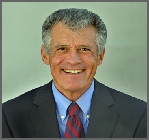

Law Office Of
Wesley H. Garcia
Attorney at Law
Petaluma / Santa Rosa Office
755 Baywood Drive, 2nd Floor
Petaluma, CA 94954
707-658-4547

CONTACT US
FREE CONSULTATION
707-658-4547
Call for an appointment:
707-658-4547 or 415-310-9027
Email: wgarcialaw@gmail.com
Main Office: 755 Baywood Drive, 2nd Floor,
Petaluma, CA 94954
Office Locations in: San Francisco • Marin • East Bay
BANKRUPTCY ATTORNEY
If creditors are harassing you, the Law Office of Wesley H. Garcia is here to fight for your rights. There are many reasons people are forced into bankruptcy - job loss, medical bills, lawsuits, unconscionable credit card interest rates, foreclosures, and garnishments. The Bankruptcy Code provides financial relief for debtors who are struggling to pay their debts by giving debtors a fresh start. There are four consumer chapters of bankruptcy: Chapter 7, Chapter 11, Chapter 12 and Chapter 13. There are different requirements to qualify for each chapter. Most consumers file either Chapter 7 or Chapter 13 bankruptcy. A bankruptcy attorney can tell you which bankruptcy chapter you qualify for and which chapter is in your best interests based on your financial situation to give you the fresh start that you deserve.
When you file for bankruptcy the Automatic Stay immediately goes into effect. The Automatic Stay prohibits most creditor collection activity. Some exceptions apply to the Automatic Stay, for instance it does not stop child support or spousal support collections. Secured creditors can also ask the court to lift the Automatic Stay. Consult with your bankruptcy attorney if you are concerned about a creditor filing a Motion for Relief from the Automatic Stay.
Chapter 7 is total debt liquidation bankruptcy, discharging all of your debts with some exceptions such as student loans, some back taxes and family support obligations. In a Chapter 7 bankruptcy a debtor exempts all of their assets that are allowed under the Bankruptcy Code. The debtor’s nonexempt assets become the property of the bankruptcy estate which is administered by the Bankruptcy Trustee. The Bankruptcy Trustee determines if an asset in the bankruptcy estate should be sold to pay off creditors or abandoned whereby the debtor keeps the asset. In reality, most debtors in Chapter 7 are able to exempt all of their assets. The Chapter 7 bankruptcy process takes about 3 months from the date of filing to the date of debt discharge.
Chapter 13 bankruptcy is for debtors who have a steady income and have enough disposable income, after their necessary monthly living expenses, to pay something to their creditors. The debtors propose a repayment plan to pay their creditors which the Court must approve. The repayment plans in Chapter 13 are for 3 or 5 years depending on the debtor's income. In a Chapter 13 the debtor keeps all of their assets and any debts not paid after the repayment plan is complete are discharged. However, a debtor must pay creditors at least as much as the creditor would have received under a Chapter 7 discharge. One benefit of a Chapter 13 filing that is not available in a Chapter 7 is “lien stripping”. If a first mortgage is “undersecured” (the home value is less than the first mortgage), any junior lien holders have no security left in the home, in essence, they are unsecured creditors and they can no longer foreclose on the property. The second mortgage along with any other junior lien holders are “stripped” from the property and they are paid just like any other unsecured creditors in the Chapter 13 plan.
At the Law Office of Wesley H. Garcia we examine our client’s bankruptcy options to evaluate if Chapter 7 or Chapter 13 is appropriate or if it is not in our client’s best interest to file bankruptcy at all.
Call 707-658-4547 today and schedule your free consultation to get your fresh start. There are solutions, it’s just a matter of taking the first step.